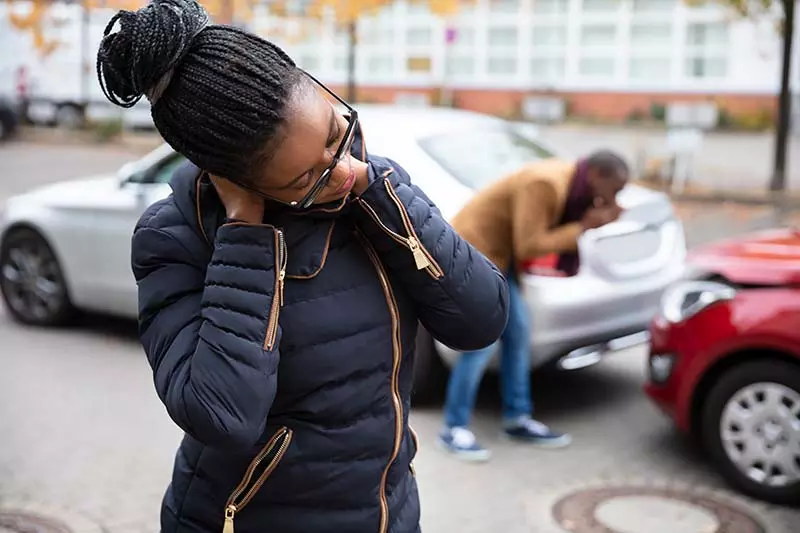Colorado Springs Uber and Lyft Lawyers
Rideshare apps like Uber and Lyft are popular transportation options in Colorado Springs. However, the rise of these services also leads to a rise in accidents involving their fleet of vehicles — leading to serious injury to passengers and drivers alike.
If you are the victim of a Colorado Springs Uber or Lyft accident, you can collect compensation for your injuries through an insurance claim or lawsuit. Trust the Colorado Springs car accident attorneys at Jordan Law to represent your best interests in these matters.
For a free legal consultation with a rideshare accident lawyer serving Colorado Springs, call (303) 465-8733
What a Colorado Springs Uber Attorney Can Do For You
If you’ve been injured in an accident involving a rideshare vehicle you are now up against a large insurance company and a large company in Uber or Lyft. They have lawyers who deal with these types of accidents every single day. They know the right questions to ask to put you in a tough spot. They know how to manipulate the facts in their favor. Going up against them without an attorney in your corner is simply not a fair fight.
Who Can Bring a Lawsuit Against Uber or Lyft?
In order to bring a negligence lawsuit against a rideshare company such as Uber and Lyft, you need to be one of the following:
- A passenger in a Lyft or Uber vehicle who was injured in the accident
- A rideshare driver injured in the accident
- Passengers in other vehicles who were injured in an accident with a rideshare vehicle
- Pedestrians or bicyclists who were hit by a Lyft or Uber vehicle
Colorado Springs Rideshare Accident Lawyer Near Me (303) 465-8733
Who Pays for Damages in a Rideshare Accident in Colorado Springs?
If you’re involved in a rideshare accident in Colorado Springs caused by another driver, that driver is generally held responsible for any injuries you sustain. However, if the at-fault driver is uninsured or underinsured, you may be able to file a claim against the rideshare company’s insurance policy. Both Uber and Lyft offer insurance coverage of up to $1 million for their drivers and passengers.
When the rideshare driver is at fault for the accident, pursuing a claim against the driver and the rideshare company’s insurance is usually straightforward. However, if you’re injured by a rideshare driver while you’re not a passenger, the process can be more complicated. In these situations, determining whether the rideshare company’s policy or the driver’s personal auto insurance applies depends on whether the driver was actively engaged in a ride or considered off-duty at the time of the accident.
Uber drivers, who are classified as independent contractors and typically use their own vehicles, are required to carry liability insurance. Uber also provides additional coverage for incidents that occur during rides. However, if the driver is off-duty when the accident happens, the rideshare company’s insurance may not apply, leaving you to navigate the complexities of insurance coverage.
How Does Rideshare Insurance Work?
When the Uber or Lyft driver has the rideshare app turned off, the driver’s personal auto insurance applies.
When the rideshare driver is waiting for a ride request, both companies provide the following liability coverage:
- $50,000 in bodily injury coverage per person
- $100,000 in bodily injury coverage per accident
- $25,000 in property damage per accident
When the Uber or Lyft driver is on their way to pick up a rider or is in the middle of a ride, the companies offer:
- $1 million in third-party liability insurance
- Uninsured/underinsured motorist bodily injury and/or first-party injury insurance
- Contingent comprehensive and collision insurance up to the actual cash value of the car minus a $2,500 deductible
Click to contact our Colorado Springs Car Accident Lawyers today
How Do I Know If I Have A Lyft or Uber Accident Case?
Rideshare accident cases are similar to car accident cases in that to bring a successful case, you need to establish that the other driver is liable for negligence. Negligence is a legal cause of action that means someone had a duty to act a certain way, they failed in that duty, and as a result they caused someone else harm. That harm can be mitigated through the availability of money to offset some of the damage caused.
Bringing a successful rideshare case means that you can prove all four elements of a negligence claim.
What Damages Are Available to Rideshare Accident Victims?
In a Colorado rideshare accident, the same types of damages are available as in a standard car accident case. These include:
Medical expenses – These damages can include any medical expenses incurred in the treatment of your injuries which resulted from an Uber or Lyft accident. Examples are ambulance rides, hospital stays, doctor’s appointments, medications, etc.
Property damage – If any of your personal property was damaged in the wreck, you can claim compensation.
Lost wages – If your injuries from the rideshare accident prevent you from working, you can claim lost wages.
Pain and suffering – Physical and emotional pain can be claimed as damages and compensation can be awarded.
Complete a Free Case Evaluation form now
Call Jordan Law For a Free Consultation About Your Uber Accident
Call Jordan Law today for a free consultation. We’re always free to speak to and if you don’t want to hire us for any reason, we’ll give you the names of other firms we respect to treat you with dignity and professionalism.
In addition to helping Colorado Springs rideshare victims, we also serve rideshare accident clients in Denver, Fort Collins, and elsewhere across Colorado.







